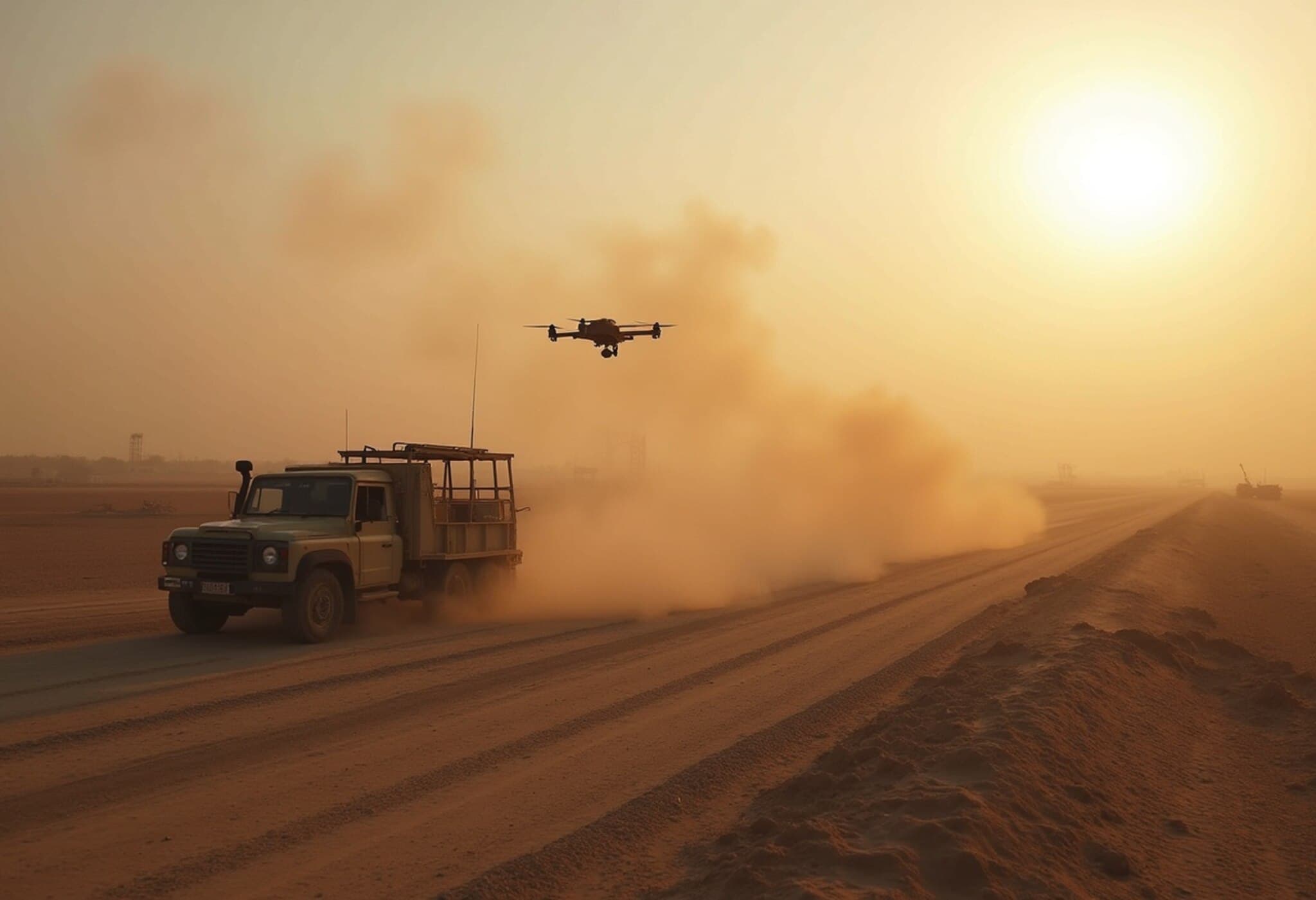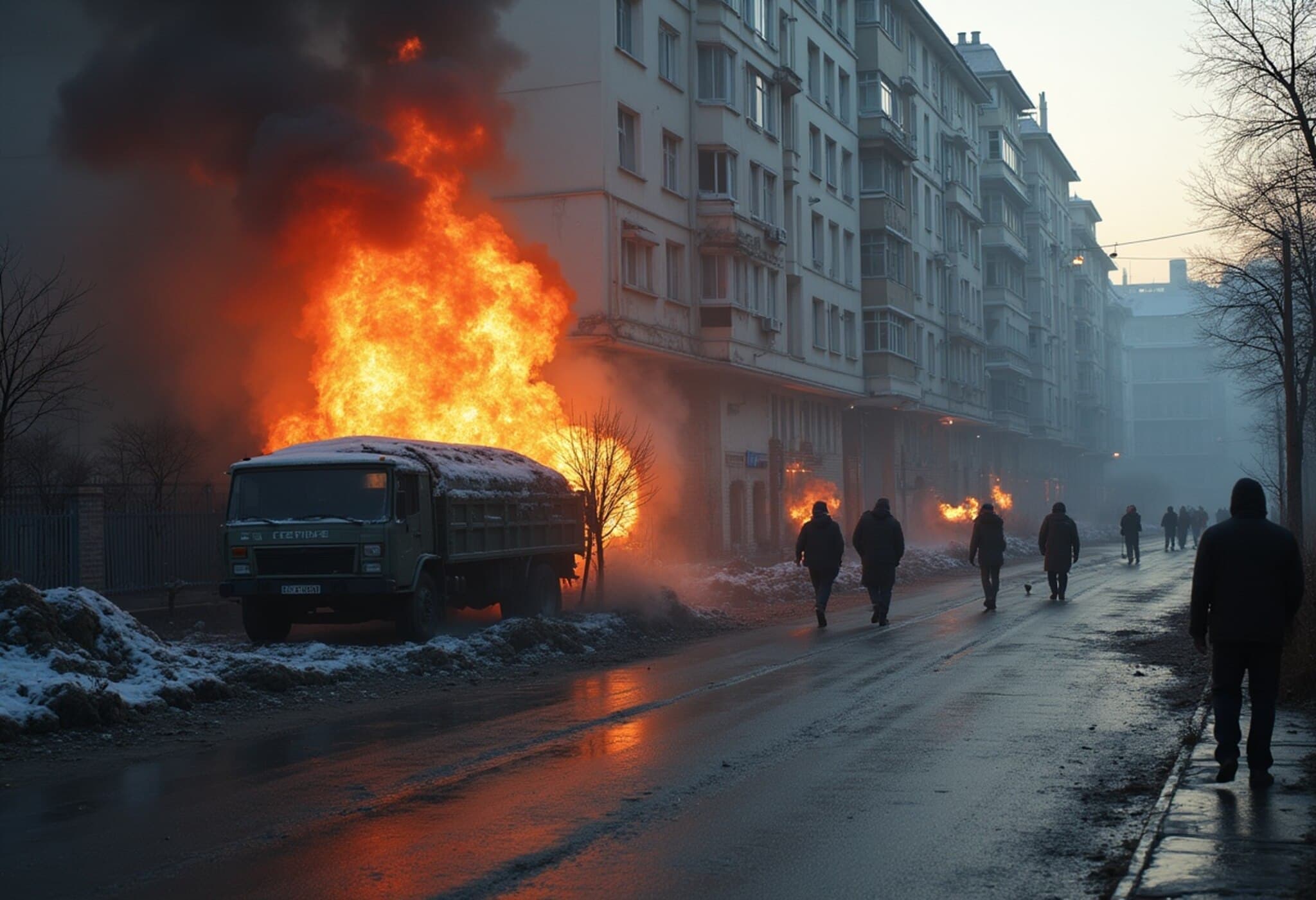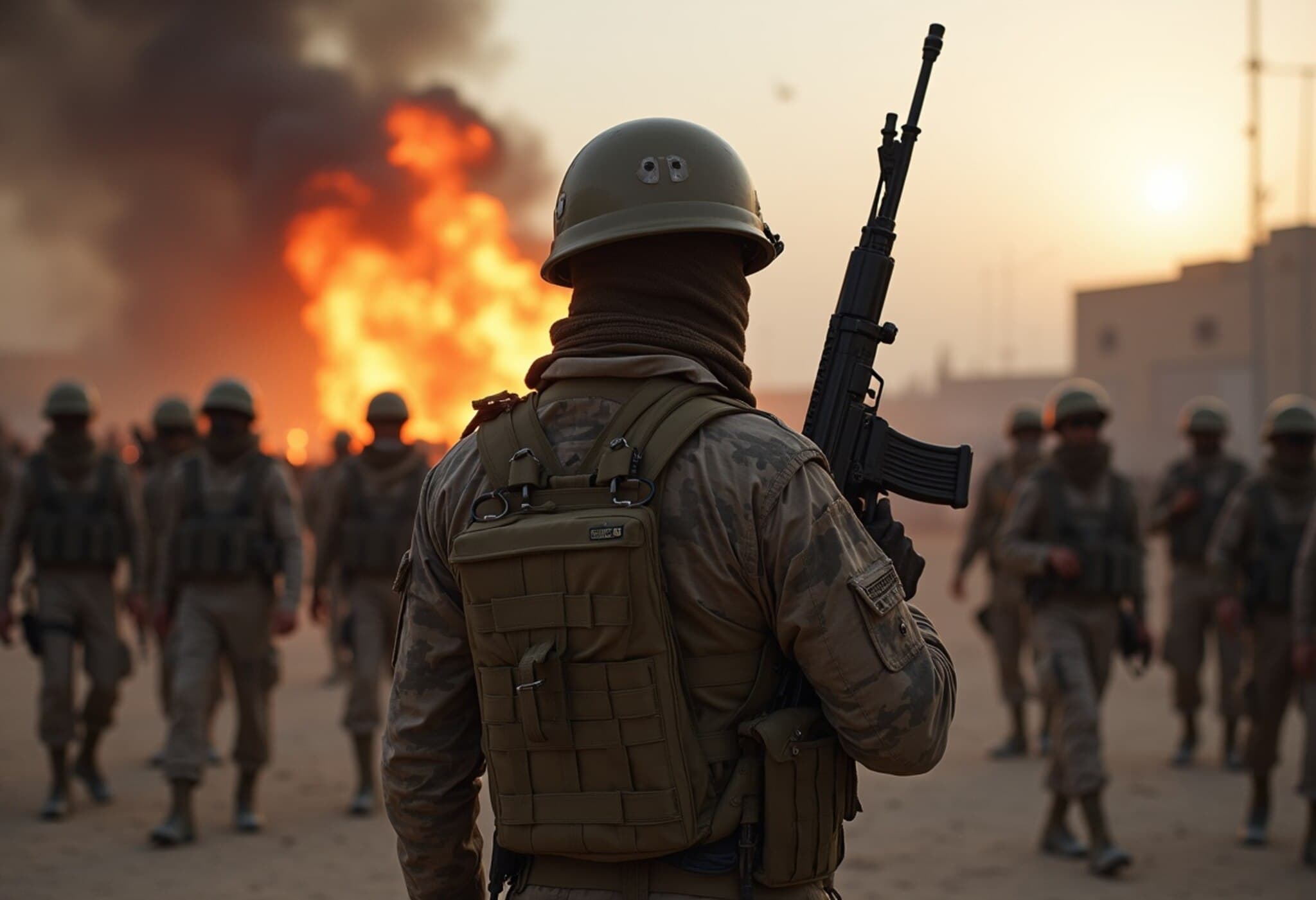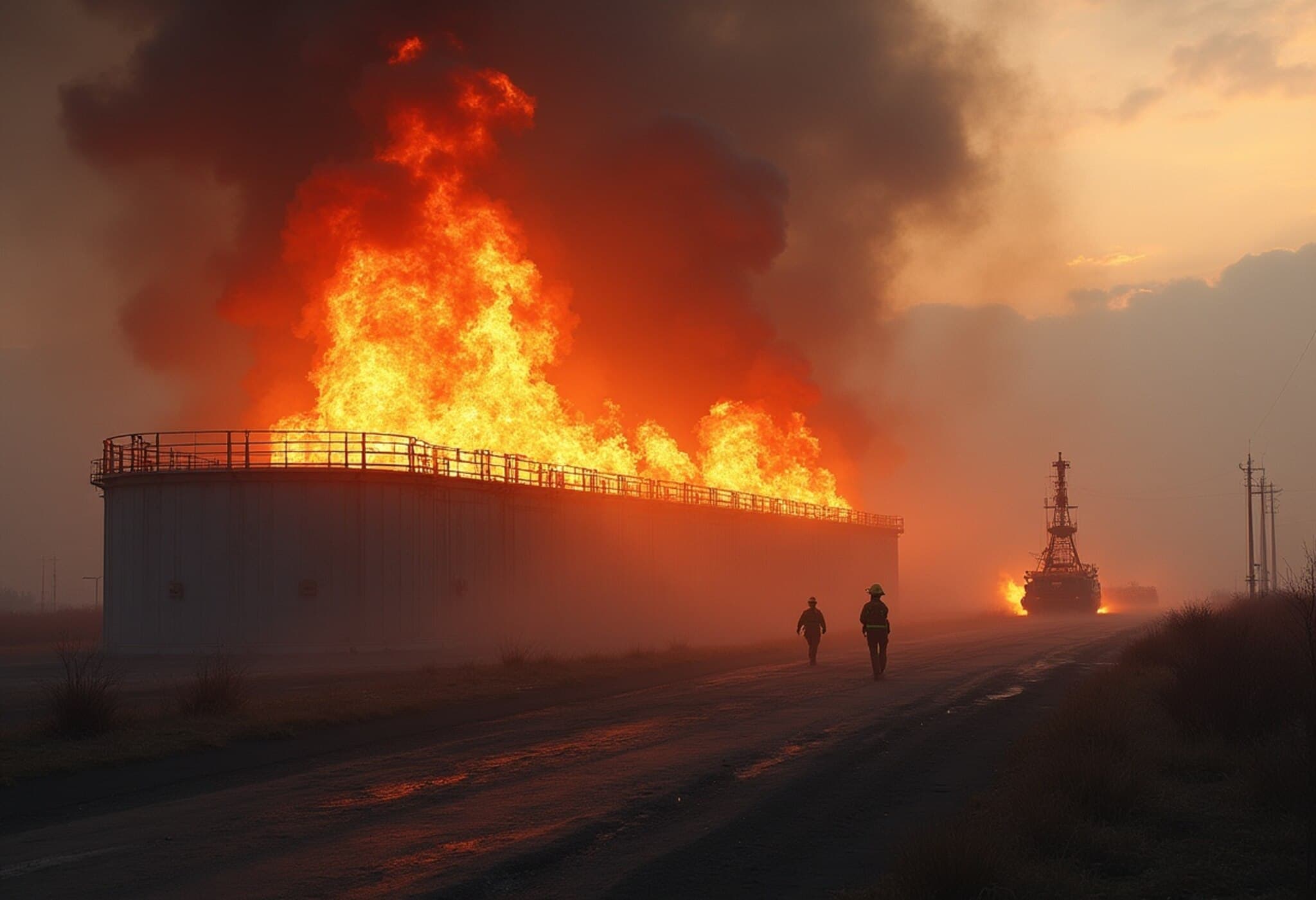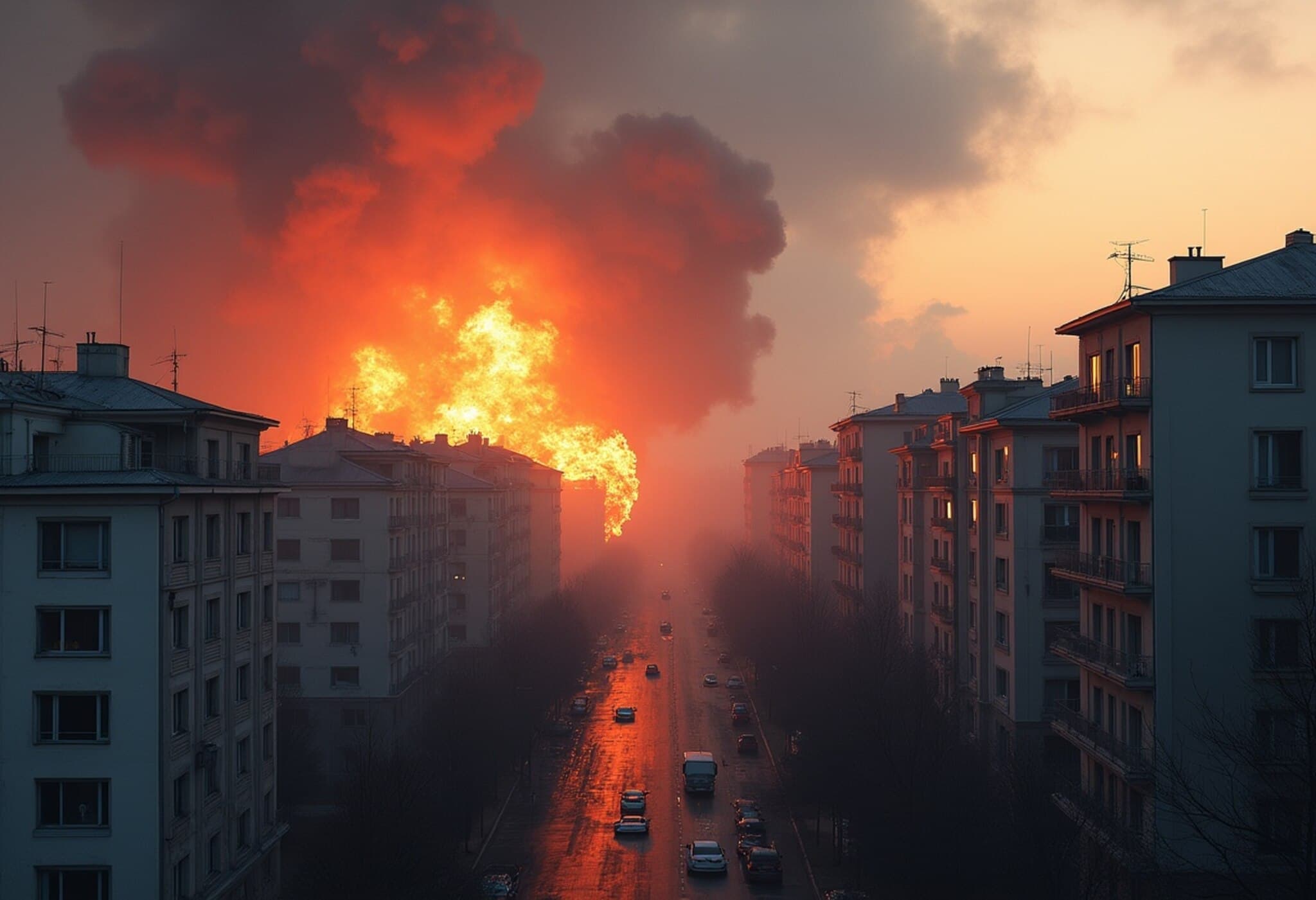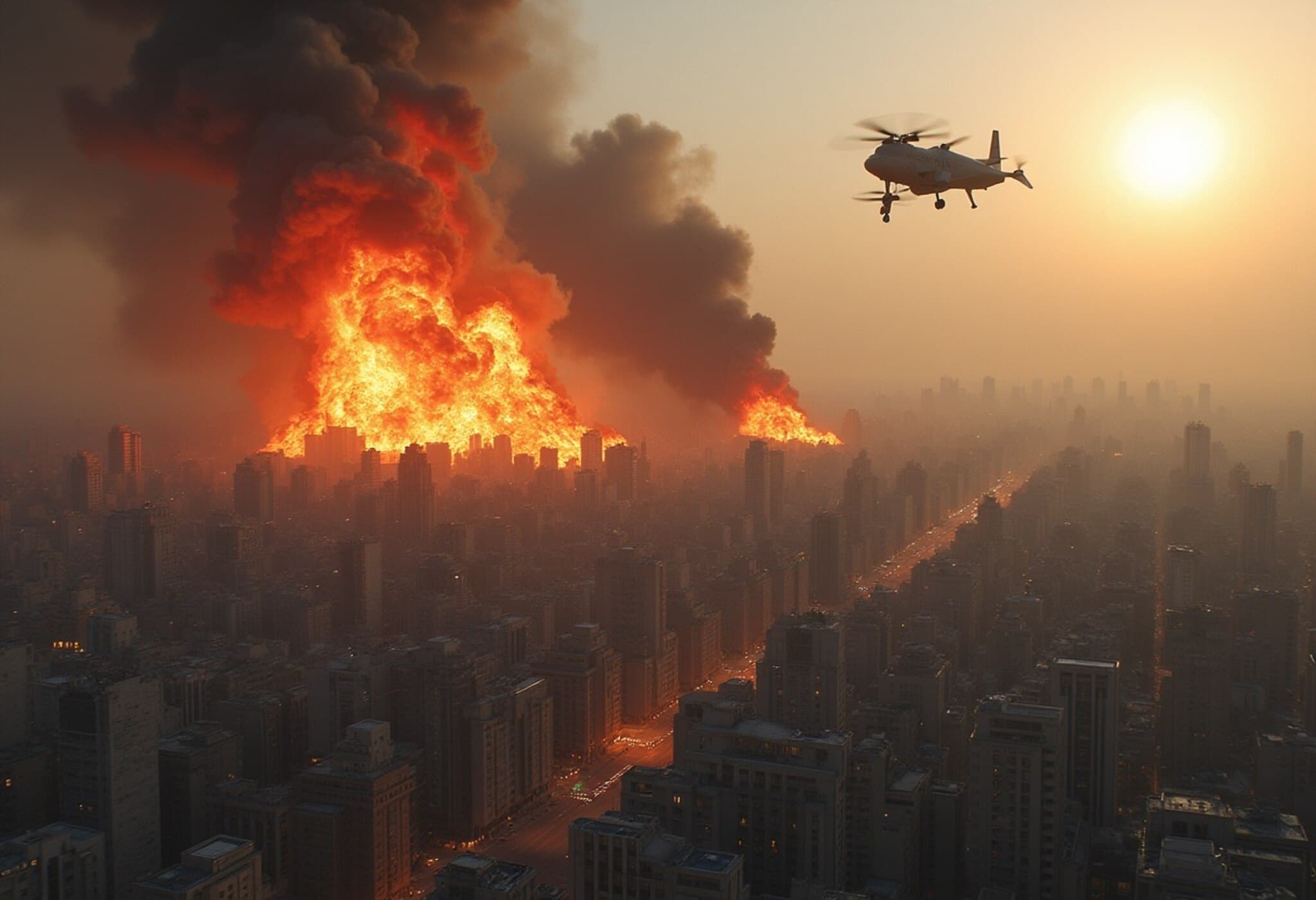Drone Strike Hits Strategic Kurdistan Oil Field
On July 15, 2025, a drone strike targeted the Sarsang oil field located in Duhok province within Iraq’s autonomous Kurdistan Region. This assault forced HKN Energy, a US-based oil company operating the facility, to suspend all operations temporarily. The regional government swiftly condemned the attack as “an act of terrorism against the Kurdistan Region’s vital economic infrastructure.”
Escalating Attacks Amid Political Tensions
This recent strike is the latest in a series of drone and rocket attacks plaguing Kurdistan’s energy sector in recent weeks. Occurring just months ahead of Iraq's crucial legislative elections in November, these attacks exacerbate an already tense relationship between Baghdad and the Kurdistan Regional Government (KRG), particularly regarding oil export rights and revenue sharing.
Background: A Region Caught Between Stability and Conflict
Iraqi Kurdistan has long presented itself as a comparatively stable and investor-friendly enclave within a country often marred by conflict and proxy rivalries. Its close ties with the United States and European governments have drawn foreign investment to its hydrocarbon sector. However, this stability is increasingly fragile amid unresolved disputes with the Iraqi federal government.
Details of the Attack and Immediate Aftermath
According to HKN Energy, the strike occurred around 7:00 am local time (0400 GMT) targeting one of their production facilities at Sarsang. Emergency teams managed to contain a fire sparked by the explosion. Fortunately, no casualties have been reported. Operations at the targeted facility remain suspended until safety and security can be assured.
Political and Security Ramifications
The Kurdistan Presidency issued a strong statement condemning the attacks, highlighting the significant risk they pose to international investments. They called on the federal government in Baghdad to identify and hold accountable those responsible, urging prevention of further incidents that threaten the region's economic lifeline.
At the federal level, Iraq’s Prime Minister Mohammed Shia al-Sudani ordered an "immediate and comprehensive investigation". His military spokesman emphasized these attacks were calculated acts to destabilize Iraq’s vital institutions and sow confusion amid an already fraught political environment.
Underlying Disputes Over Oil Exports
The Kurdistan Region and Baghdad have been locked in a protracted dispute over oil export control and revenue sharing. A key pipeline through Turkey has remained shut since 2023 amid legal and technical challenges. Moreover, the federal government filed a complaint against Kurdistan for signing gas contracts with foreign companies—including HKN Energy—in May 2025, insisting all oil and gas projects must be federally supervised.
Interestingly, just hours after the drone strike, Iraq's Oil Ministry announced an initial agreement with HKN Energy to develop the Hamrin oil field in Salaheddin province, signaling a complex and evolving relationship between federal authorities and foreign investors.
Broader Security Context: Proxy Tensions and Regional Fallout
Iraq's security landscape is frequently complicated by the influence of regional powers like Iran, the US, and Israel, with various proxy groups operating within its borders. The Kurdistan Region itself faces attacks often attributed—though not conclusively—to pro-Iran factions, a claim Baghdad officially denies, particularly regarding accusations against groups such as the Hashed al-Shaabi paramilitary coalition.
The US Embassy in Baghdad condemned the drone attacks, labeling them "unacceptable" and urging the Iraqi government to take decisive action to protect critical infrastructure and safeguard investments by Iraqi and international companies alike.
Recent Drone Activity Highlights
- A drone was downed near Arbil airport on July 14, 2025.
- Two drones struck the Khurmala oil field in Arbil province causing material damage the day prior.
- No group has publicly claimed responsibility for these attacks.
Expert Commentary: Implications for Regional Stability and Investment
The recurrence of such attacks poses serious questions about the security of Iraq's oil infrastructure—central to the country's economy and post-conflict recovery. According to energy security analysts, these incidents undermine investor confidence and deter much-needed foreign direct investment, particularly in the Kurdistan region which has historically been a beacon of relative economic stability.
Moreover, the timing—just months before critical national elections—raises concerns about attempts by internal and external actors to destabilize political processes or exert leverage over resource control. Legal experts observing the dispute between federal and regional authorities emphasize that clear, enforceable frameworks around energy contracts remain essential to avoid such conflicts in the future.
Looking Ahead: Navigating Iraq’s Fragile Energy Landscape
As Iraq prepares for its November elections, safeguarding its critical economic infrastructure—especially within autonomous regions like Kurdistan—will be paramount. The intertwined challenges of political fragmentation, external influence, and factional tensions require coordinated and transparent efforts from Baghdad, the KRG, and international partners.
The question remains: will these attacks prompt a unified security response and renewed dialogue on oil governance, or will they deepen divides and jeopardize Iraq’s economic potential?
Editor’s Note
The drone strike on Kurdistan’s Sarsang oil field is more than an isolated security incident—it encapsulates the ongoing struggle over Iraq’s energy wealth, regional autonomy, and the geopolitical tug-of-war within the Middle East. For investors and policymakers alike, understanding these layered dynamics is critical. Monitoring how Baghdad and Arbil manage ensuing tensions and protect vital assets will be essential for Iraq’s stability and economic future.

